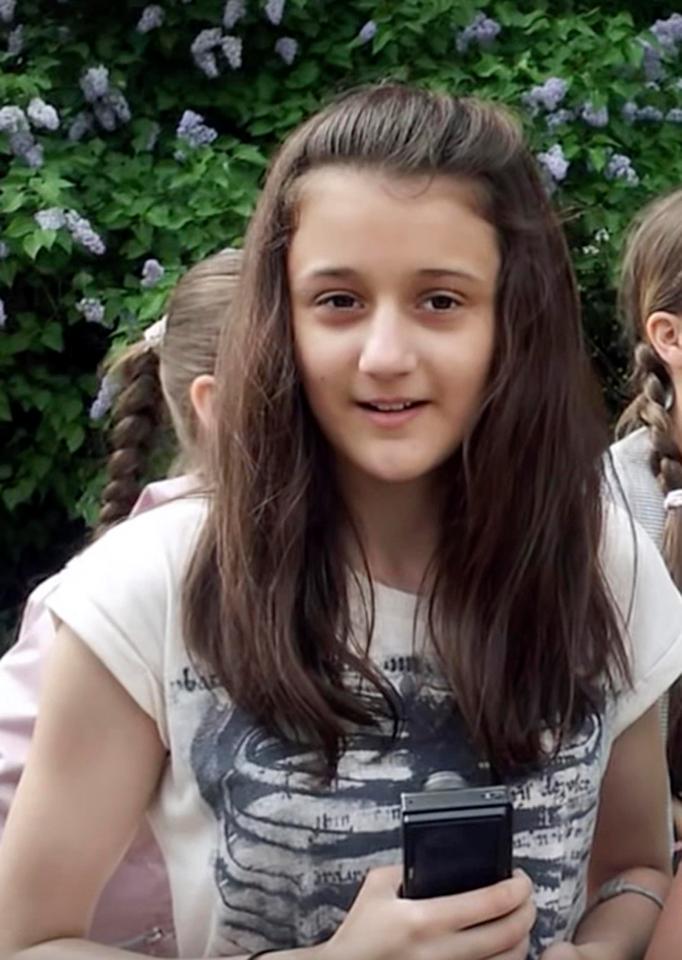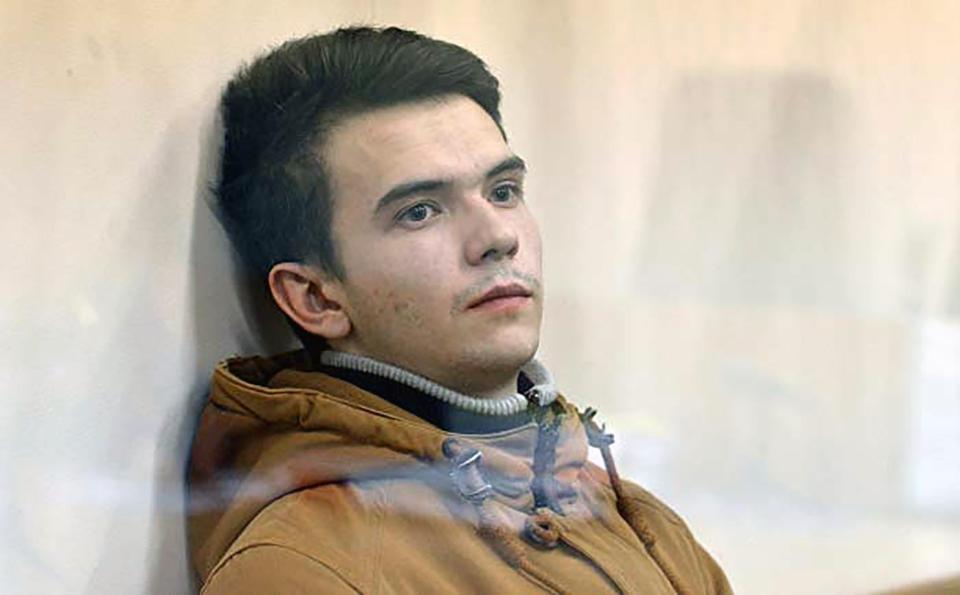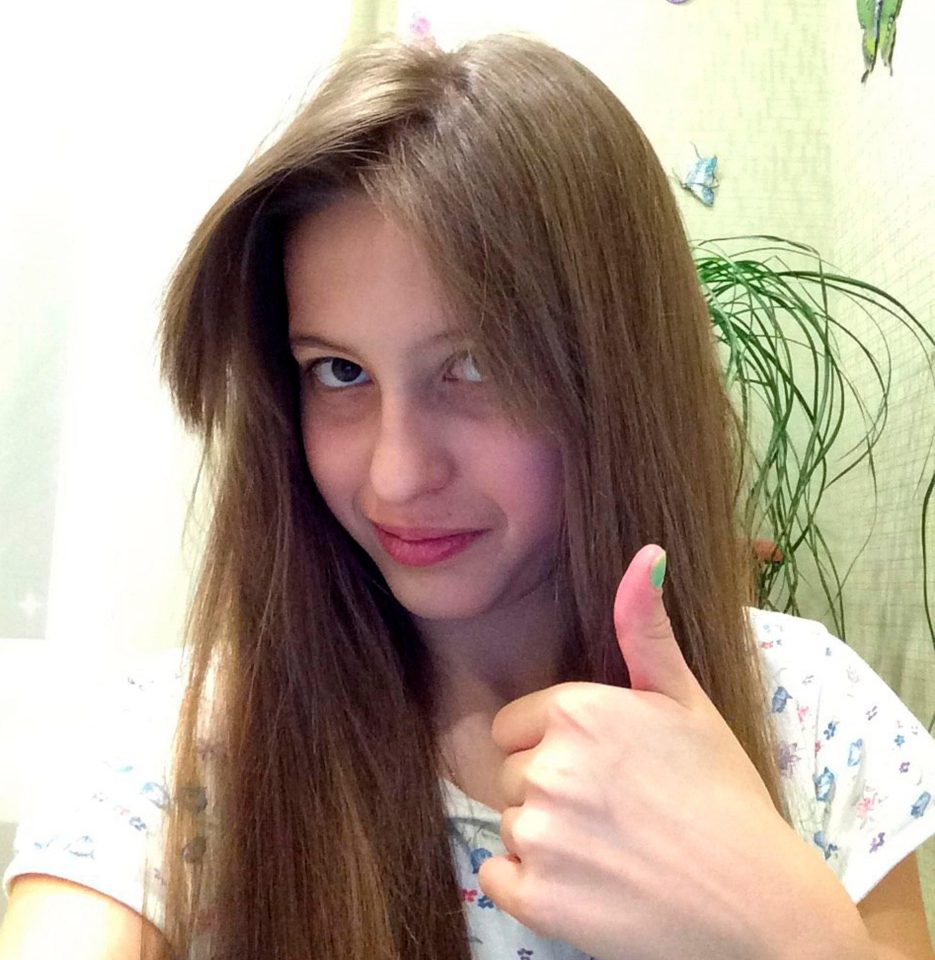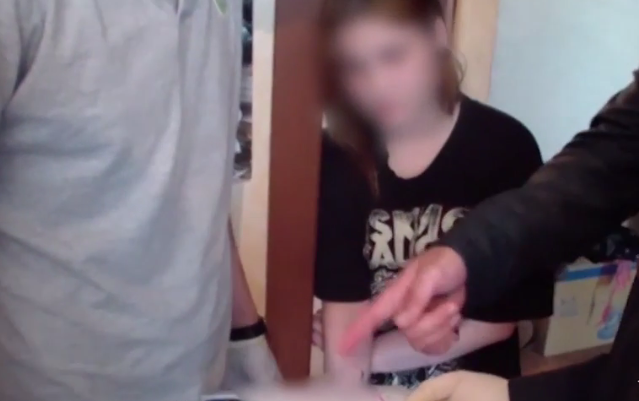A 17-year-old girl has been arrested on suspicion of masterminding the Blue Whale suicide game that appears to goad vulnerable teens into killing themselves.
The unnamed teen allegedly told victims she would murder them or their family if they failed to complete tasks that involved cutting themselves with razor blades and other acts of self-harm.
Separately, a 21-year-old man was detained near Moscow accused of inciting adolescent girls to take their own lives.

Diana Kuznetsova, 16, died after reportedly playing the online ‘game’

Philipp Budeikin, 21, the Russian man convicted over the sick Blue Whale ‘suicide game’

12-year-old Angelina Davydova fell to her death from a tall building
Police are said to be probing a number of suicides across Russia which they fear are linked to the online craze.
But as of yet the Blue Whale game has not been proven to be directly responsible for any deaths.
The horrific tasks include self-harming, watching horror movies and waking up at unusual hours, but these gradually get more extreme.

The 17-year-old girl has been accused of driving teens to their deaths
The NSPCC say children should remember not to follow the crowd and not feel pressured into doing anything that makes them feel unsafe.
Russian state investigators claim the female “death group administrator” used threats against parents or siblings of her victims as added pressure to obey her and commit suicide.
She also threatened the victims with being murdered in a sinister new twist to the saga of the online groups which pose rising concerns to police in many countries.
Colonel Irina Volk, of the Russian Interior Ministry, said: “This administrator was sending particular tasks – often life-threatening – to each of several dozen members of the group.”
“In contrast to similar groups, teenagers in this group were blackmailed with death threats against them or their relatives for not completing the tasks.”
She set victims 50 tasks – in as many days – aimed at “creating psychologically traumatising situations”, with the final stage demanding that the victim commits suicide.
The suspect – who cannot be named because she is underage – told alleged victims she was a man.
She is shown barefoot in a police video as police examine books and drawings in her flat, many linked to suicide.
Her possessions included a drawing by her of Philipp Budeikin, a 22-year-old man accused of inventing the death game.
Budeikin, who also went by the name Philipp Fox, was jailed for three years and four months in the country’s first conviction involving the game, in July.
There was shock at the “soft” sentence from a closed-door trial which related to his confession to two cases in which the “brainwashed” victims were saved.
Earlier, Budeikin had been investigated for alleged links to 16 suicides in different regions of Russia, and had been reported as a key mastermind of the sick social media phenomenon
He had appeared to confess to provoking 17 deaths, but these cases were not included in his trial.
Sergey Pestov, whose daughter Diana Kuznetsova, 16, fell to her death from the top of a building in Ryazan, now campaigns for action against Blue Whale and similar games.
He described the sentence as: “Soft from the human point of view, and we would like to see a tougher sentence.
“But at least it is an example. It is good grounds to say that such people will not remain unpunished.”
In another Russian case, Anna K, from Karsun, was found hanged in March after becoming obsessed with Blue Whale.
In December, Vilena Piven, 15, jumped from a building floor in Mariupol, Ukraine and died on the spot.
Her classmates said that she was shy and had been seen as school with cuts on her arms.
She posted the view from the top floor of the building on her social network page and wrote: “The quest is over. There’s just one step to be made.”
Later she wrote: “I did not think that it would be so scary to jump. Just one step forward and everything is done.
“But this very step is so difficult to make.”
Before the jump, she wrote: “I’m scared, I’m afraid.”
Despite this, she jumped.
Overall, around 20 Russian suicides are officially linked to the trend which has been branded “evil” by parents and police, but politicians and the media have suggested the figure runs into the hundreds.
Investigative newspaper Novaya Gazeta alleged that of 130 suicides of children in Russia between November 2015 and April 2016 almost all were “members of one group or other on the internet”.
Girl arrested for ‘being worldwide mastermind of sick Blue Whale game feared to goad vulnerable teens into suicide’
0
Leave a Reply Cancel reply
BROWSE BY CATEGORIES
- #SmartLagos
- Basketball
- Beauty
- Boxing
- Breaking
- Business
- Careers
- Crime
- Default
- Education
- Entertainment
- Event
- Fashion
- Featured
- Football
- Gaming
- Gist
- Golf
- Health
- Inspirational Patience
- Interview
- Investigative
- Law
- Lifestyle
- local
- MetroMan
- MetroPerson
- metroplus
- MetroProfile
- Movies
- Music
- MUSIC
- New Music
- News
- nolly wood
- Nollywood
- Novels
- Odawood
- Opinion
- Parenting
- Photos
- Politics
- Press Release
- Relationship
- Religion
- Scandal
- Security
- Sex
- Society
- Sports
- Technology
- Travel
- TV
- Videos
- Weird
- Wheels
- World
BROWSE BY TOPICS
#COVID19Nigeria
#EndSARS
Adams Oshiomhole
Akinwunmi Ambode
APC
ASUU
atiku
Atiku Abubakar
Big brother Naija 2020
boko haram
Buhari
Bukola Saraki
CBN
court
COVID-19
davido
ECOWAS
Edo Election
Edo State Election
efcc
Featured
FG
Goodluck Jonathan
gunmen
INEC
Kayode Fayemi
Lagos
Lagos State
Muhammadu Buhari
NCDC
NDLEA
news
Niger
Nigeria
NLC
Obaseki
PDP
police
politics
President Buhari
Sanwo Olu
senate
tinubu
wike
Yemi Osinbajo
© Copyright MetroNews NG 2020. All rights reserved.









